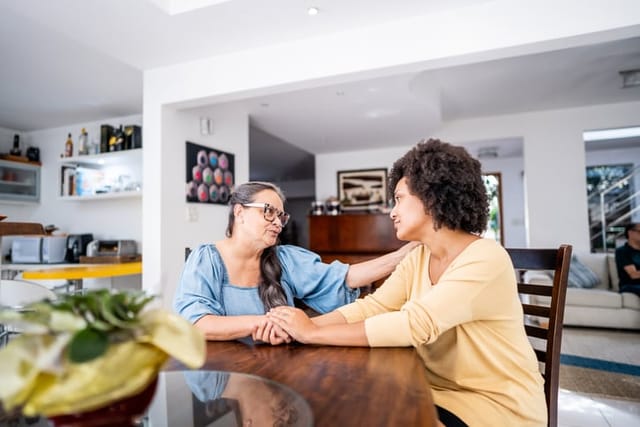There’s no instruction manual for parenting, and there’s no one wrong or right way to do it, especially since every child and their needs are different. However, parents who want to ensure they raise emotionally intelligent kids tend to do certain things differently to foster this sense of well-being not only when their little ones are young, but especially when they grow up and become adults.
1. They Keep It Real with Their Emotions.

Parents who nail emotional intelligence don’t hide their feelings. They let their kids see them being real – happy, sad, frustrated, all of it. It’s like showing a behind-the-scenes of handling emotions, proving it’s okay not to be okay sometimes. They’re honest about feelings, which makes kids comfortable to be the same.
2. They’re All Ears and Heart.
These parents are ace listeners. They give their full attention when their kids talk, making them feel like they’re the most important people in the room. It’s not just about hearing words; it’s about picking up on those unspoken vibes too. They make sure their kids know they’re heard and understood, not just listened to.
3. They Turn Mistakes Into Teaching Opportunities.
Mistakes? No biggie. These parents use slip-ups as learning chances. They chat about what went wrong and explore feelings without any blame game. It’s like, “Oops, that happened, so what can we learn?” This approach takes the sting out of messing up and turns it into something constructive.
4. They’re the Empathy Experts.

Empathy is their superpower. These parents are pros at getting down to their kid’s level and seeing the world through their eyes. It’s not just about understanding their child’s feelings; it’s about sharing them. This deep connection teaches kids to be kind and understanding, not just with family but everyone.
5. They Draw the Line but Make It Fun.

Boundaries? Sure, but they’re not all do’s and don’ts. These parents mix rules with fun. It’s like setting up a game where everyone knows how to play fair. They show that limits can be cool and that respecting them makes life smoother for everyone.
6. They Make Social Skills a Big Deal.

For these parents, social skills are as important as ABCs and 123s. They encourage their kids to mix and mingle, teaching them the art of conversation and the power of listening. It’s about learning to ride the social waves, understanding that every interaction is a chance to grow emotionally.
7. They Champion the Slow and Steady.

Patience is their secret ingredient. These parents know that emotional smarts don’t happen overnight. They’re in it for the long haul, celebrating small wins and knowing that every misstep is a step towards growth. Their patience shows kids that it’s okay to take time to figure things out.
8. They Throw a Party for Feelings.

Emotions get a VIP treatment here. These parents encourage their kids to express all their feelings, the good, the bad, and the meh. They create a space where every emotion is welcome, teaching kids to embrace their feelings without fear or shame. It’s like having an open-door policy for all emotions, making sure none feel left out.
9. They’re Cool with Unplugging.

These parents know the value of logging off and tuning in to each other. In a world where screens are everywhere, they make sure to set aside tech-free time. This helps their kids learn the art of real conversation and the importance of being present. It’s about valuing face-to-face time, making each interaction more meaningful.
10. They’re Masters of the Chill Zone.

Creating a relaxed environment at home is their specialty. Stress and tension take a back seat. It’s all about fostering a vibe where everyone can unwind and be themselves. In this chill zone, emotions flow more freely, and kids learn to associate home with comfort and openness.
11. They Celebrate Individuality.

In these families, being different is celebrated, not just accepted. Parents encourage their kids to embrace what makes them unique. This boosts confidence and teaches them to respect and appreciate diversity in others. It’s about understanding that everyone’s unique emotional journey is valuable.
12. They Share Their Own Stories.

Parents share tales from their own life, not just as stories, but as lessons. They talk about their challenges and victories, making sure to highlight the emotional journey. This storytelling helps kids understand that life is a mix of ups and downs and that emotional resilience is key.
13. They Make Empathy a Family Mission.

Empathy isn’t just a one-person show in these homes. It’s a group effort. Everyone gets in on understanding and caring about each other’s feelings. This collective approach reinforces the idea that being sensitive to emotions isn’t just personal; it’s a way to connect as a family.
14. They Encourage Creative Expression.

These parents are all for using art, music, or writing as emotional outlets. They know that sometimes words aren’t enough, and creativity can help express those hard-to-say feelings. Encouraging artistic expression lets kids explore their emotions in a fun, engaging way, adding color and rhythm to their emotional development.
15. They Value the Power of Apology.

In these families, saying sorry is seen as a strength, not a weakness. Parents lead by example, showing it’s okay to admit mistakes and apologize sincerely. This teaches kids that owning up to errors and mending fences is a part of emotional maturity and builds stronger, more honest relationships.
16. They Celebrate Small Victories.

These parents are big on recognizing even the tiniest achievements. It’s not just about the big wins; every small step is worth a cheer. This approach helps kids see the value in every effort and boosts their emotional well-being, teaching them that joy can be found in the little things.
17. They Embrace the Great Outdoors.

Parents who raise emotionally intelligent children often use nature as a classroom. They spend time outdoors, helping their kids connect with the environment and find peace away from the hustle and bustle. This connection with nature can be a tranquil space for emotional growth and reflection.
18. They Lead with Laughter.

Humor is a big deal in these households. Parents use laughter as a way to lighten the mood and create a joyful atmosphere. They know that a good chuckle can be the best medicine for easing tension and building a happy, emotionally healthy home.
Hope you found this helpful. Give it a like and follow Bolde on MSN for more!





